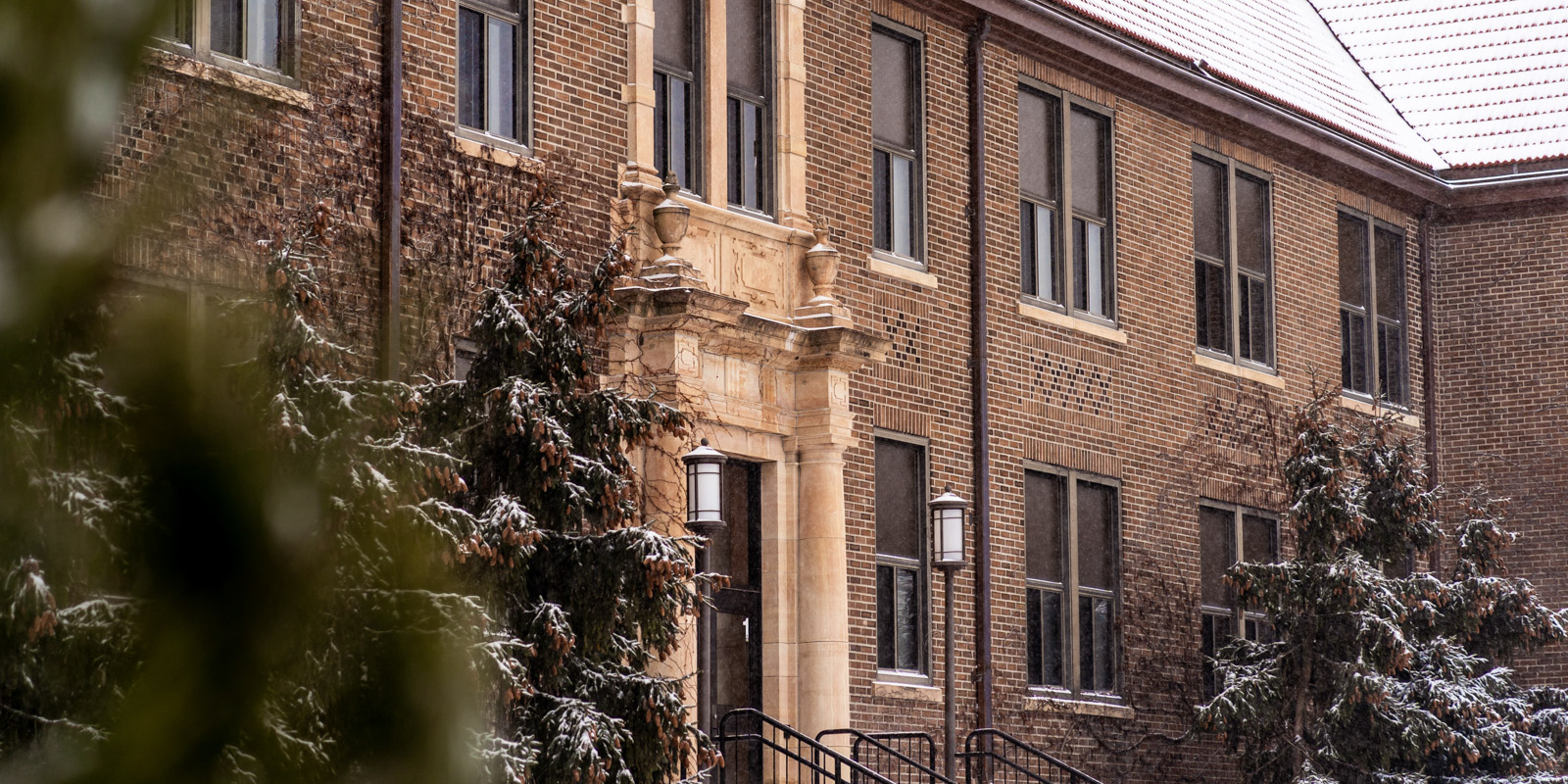
Accreditation
WSU is an accredited higher education institution with more than 30 academic programs that also hold specialized accreditation, certification, or recognition.
First accredited in 1913, Winona State University has been recognized by the Higher Learning Commission (HLC) for our academic quality.
The WSU Children’s Center is additionally accredited by the National Association of the Education of Young Children (NAEYC).
WSU holds awards for:
- Tree Campus
- Carnegie Engaged Campus
- Best in the Midwest
- Green Campus
- Military Friendly
Accredited by the Association to Advance Collegiate Schools of Business International (AACSB)
Accredited by the Council for
Accreditation of Counseling and Related Educational Programs (CACREP)
Accredited by the Minnesota Board of School Administrators (BOSA)
Accredited by Minnesota Professional Educator Licensing and Standards Board (PELSB)
Accredited by the National Association of Schools of Music (NASM)
Accredited by the National Association of Schools of Theatre (NAST)
Approved by the American Bar Association
Accredited by the Commission for Accreditation of Athletic Training Education (CAATE)
Accredited by the Commission on Collegiate Nursing Education (CCNE)
Accredited by the American Association of Colleges of Nursing
Commission on Accreditation of Allied Health Education Programs (CAAHEP)
Accredited by the Council on Social Work Education (CSWE)
Approved by Minnesota Board of Nursing
Accredited by the American Chemical Society (ACS)
Accredited by the Accreditation Board for Engineering and Technology (ABET)
| University Area | Organization |
|---|---|
| President's Office | American Association of Colleges & Universities (AAC&U) |
| President's Office | American Association of State Colleges & Universities (AASCU) |
| President's Office | American Association of University Women (AAUW) |
| President's Office | Higher Learning Commission (HLC) |
| President's Office | Minnesota Campus Compact (MnCC) |
| President's Office | Rochester Chamber of Commerce (RCC) |
| President's Office | State Authorization Reciprocity Agreement (SARA) |
| President's Office | Voluntary System of Accountability (VSA) |
| President's Office | Winona Chamber of Commerce (WCC) |
| Academic Affairs | American Association of Colleges of Nursing (AACN) |
| Academic Affairs | Association to Advance Collegiate Schools of Business (AACSB) |
| Academic Affairs | American Association of Colleges for Teacher Education (AACTE) |
| Academic Affairs | Commission on Accreditation of Athletic Training Education (CAATE) |
| Academic Affairs | Council for Accreditation of Counseling and Related Educational Programs (CACREP) |
| Academic Affairs | Council for Adult and Experiential Learning (CAEL) |
| Academic Affairs | Council for Accreditation of Educator Preparation (CAEP) |
| Academic Affairs | Council of Colleges of Arts and Sciences (CCAS) |
| Academic Affairs | Commission on Collegiate Nursing Education (CCNE) |
| Academic Affairs | Council of Graduate Schools (CGS) |
| Academic Affairs | Council for Social Work Education (CSWE) |
| Academic Affairs | Minnesota Association of Colleges for Teacher Education (MACTE) |
| Academic Affairs | National Association of Schools of Music (NASM) |
| Academic Affairs | National Association of Schools of Theatre (NAST) |
| Academic Affairs | University Professional and Continuing Education Association (UPCEA) |
| Finance & Administration | American College & University Presidents Climate Commitment (ACUPCC) |
| Finance & Administration | Society of College and University Planning (SCUP) |
| Student Life & Development | American Association of Collegiate Registrars & Admissions Officers (AACRAO) |
| Student Life & Development | Student Affairs Administrators in Higher Education (NASPA) |
| University Advancement | Council for Advancement and Support of Education (CASE) |
The State Authorization Reciprocity Agreement (SARA) is an agreement among member states, districts and territories that establishes comparable national standards for interstate offering of postsecondary distance education courses and programs.
It is intended to make it easier for students to take online courses offered by postsecondary institutions based in another state.
WSU is a member of National Council for State Authorization Reciprocity Agreements (NC-SARA), which means we share a reciprocity agreement with all states who are part of the NC-SARA group.
To find out if you live in a state that has joined this consortium, view the NC-SARA directory. If you don’t see your state listed as NC-SARA approved, fear not. More states are coming on board quickly, and soon we anticipate that most states will be participating.
Winona State University has been approved by the State of Minnesota to participate in the National Council for State Authorization Reciprocity Agreements. NC-SARA is a voluntary, regional approach to state oversight of postsecondary distance education.
Professional Licensure
Before enrolling in an online educational program that leads to professional licensure, a student should be assured that the program meets the requirements for the particular occupation in the state in which the student resides or intends to practice.
To help identify the requirements for each state and the District of Columbia, our NC-SARA organization has provided resources and contact information for the five most common programs leading to professional licensure:
- Counseling
- Nursing
- Psychology
- Social Work
- Teacher Education
To access this contact information or to find out more about professional licensure and program accreditation, visit the NC-SARA Professional Licensure site.
Student Consumer Complaint Process
Pursuant to the United States Department of Education’s Program Integrity Rule, institutions providing online education are required to provide all prospective and current students contact information of the state agency or agencies that handle complaints against postsecondary education institutions offering distance learning within that state.
We encourage you to seek resolution to any concerns by discussing them informally with a staff member at the University. If a complaint cannot be handled informally, WSU students are encouraged to use our University’s complaint process, outlined in the Student Handbook.
If a complaint cannot be resolved at the University level, you may contact the Minnesota Office of Higher Education. If you reside in another state, you may contact your local state agency for further information.